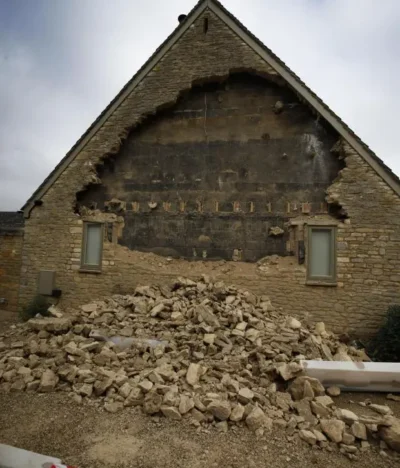Construction worst-hit sector for insolvencies
18 Jun 2024
By Ian Weinfass
Construction was the worst hit industry for insolvencies in the year to April 2024, the Insolvency Service has revealed.
Some 4,401 construction companies in England and Wales registered as insolvent in the period – 18 per cent of all businesses to do so.
The figure is almost 500 more than the next worst-hit industry, wholesale and retail, which saw 3,906 insolvencies. Accommodation and food service activities was the third-worst sector, seeing 3,821 cases.
Newly released data also showed that 399 construction businesses registered for insolvency in April 2024, up from 315 in March.
RSM UK national head of construction Kelly Boorman said: “Funding is still tight for construction businesses, especially as interest rates haven’t come down as quickly as needed, which alongside rising labour costs means margins are smaller than ever.
“With pipelines continuing to grow, there’s an increasing tension from managing lack of access to working capital to deliver projects and the time taken to mobilise, both key contributors to the number of construction insolvencies.”
She added that the political landscape was adding uncertainty to the market, payment times were stretching the supply chain and access to labour was expected to worsen in the summer months.
This means that the audit and tax consultancy expects construction insolvencies to increase in the third quarter of 2024.
“The next government must therefore prioritise de-risking the supply chain and reducing payment terms, and provide clarity on infrastructure planning and spend, enabling businesses to make more informed and long-term growth decisions when bidding for projects,” Boorman added.
Companies that went under in the year to April 2024 include Buckingham Group, Henry Construction and Readie.
Aecom managing director for building and places Jo Streeten also said the second half of the year is likely to be more challenging.
“Output continues to fluctuate and, with the economy slowing to a halt in April, there is a very real prospect of a further delay to the rate cuts that will ease pressure on balance sheets.
“The impending election offers the promise of improved conditions – not least in the prospect of a new infrastructure strategy and a more effective planning system.
“However, contractors will need to continue to cost-manage effectively until any increase in demand – aided by greater political certainty – materialises.”






